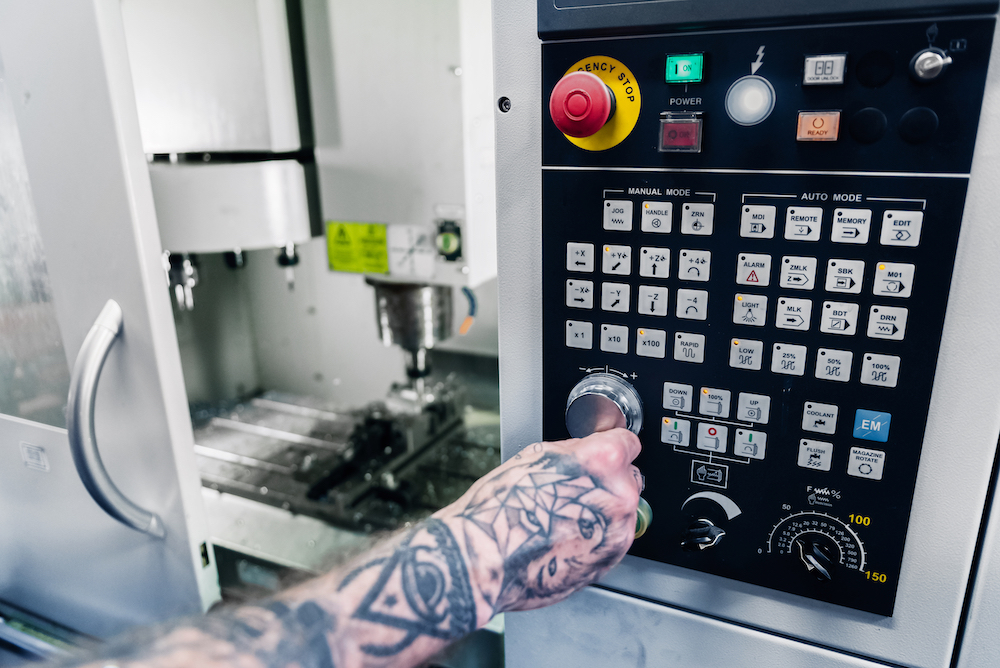One of the main sectors that Employment Solutions recruits in is Manufacturing and manufacturing a lot of the time means CNC machines, so it's an area that we are very familiar with.
We wanted to take a look at CNC Machining and how the advances are making Manufacturing not only better but a whole lot safer.
The oldest, evidenced, machine tool ever found dated back to 700bc and was found in Italy, these simple lathes were nothing in comparison to the machine tools that we have at our disposal now, but you have to start somewhere don't you.
These days machine tools are usually pre-programmed and controlled by computers, this digitalisation makes CNC machining more efficient than other manufacturing techniques. CNC (Computer Numerical Control) is one of the most transformative technologies in modern Manufacturing.
It's not all metal, CNC machines can also work on plastic and wood, but the material is going to play a massive part in design choices as you would have to think about the strength, hardness and temperature/chemical resistance. The most common material choice is metal, usually, aluminium as it's light, durable and conducts both heat and electricity better than most others.
Modernisation in the way we manufacture products is central to the fourth industrial revolution and with that more and more companies are investing in CNC machinery, making their process and capabilities more efficient and flexible.
So just how is this remarkable technology making engineering better and safer?
1. It's more convenient. Computer run machines mean little to no manual work, saving time as automated processes are faster than human-led ones, it also drastically lowers errors and can operate regardless of the day or time of the week.
This has sparked worries that workers will be replaced by machines; this is not the case as workers can be retrained to look after and operate the machines once they are set. With all of these emerging technologies, most of the jobs that will exist in the next 20 years haven't even been invented yet… that's quite exciting.
2. We need to see it first! The prototype that is. Prototyping is one of the most essential parts of Manufacturing, without proof of concept manufacturers would be going in blind and producing pieces that might not work/fit. CNC machining takes the pain out of prototyping making it cheaper and faster to get mock-ups made to aid in the design process.
3. Sustainable Manufacturing. Less time, less waste and fewer mistakes are music to the ears of manufacturing engineers and their bosses as it all means money saved. CNC machining also does not require additional tools like sanders or drills as everything is incorporated as part of the machine, cost savings all round.
4. Fewer Processes. Software plays a big hand in monitoring CNC machines, and the CAD models are uploaded directly to the machine meaning fewer processes and steps to follow in the manufacturing process. The machine is capable of performing all of the steps unaided without the need for additional tools or manual intervention making life easier for manufacturers.
5. Safety First. Modern CNC machines have a host of safety features built into them to keep the operators and other workers safe. Fully enclosed with dust extraction, safety doors, contact mats and guard fences, there is no reason a worker should be injured while operating one of these machines.
The ongoing digitalisation of engineering processes is crucial to keeping up with today's demand for products and its only just beginning.
Do you work in a manufacturing facility or around CNC machinery? What are your thoughts on the advancements in technology? Where do you think it will be in the next 10 years?








